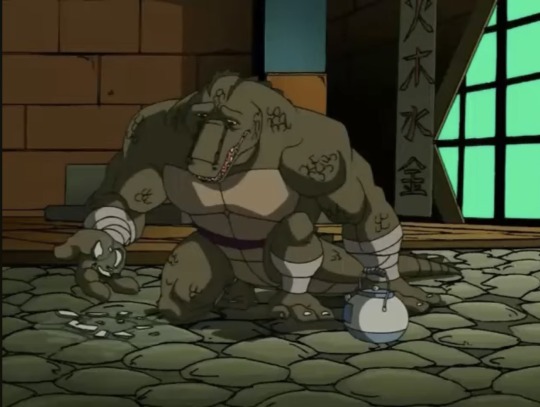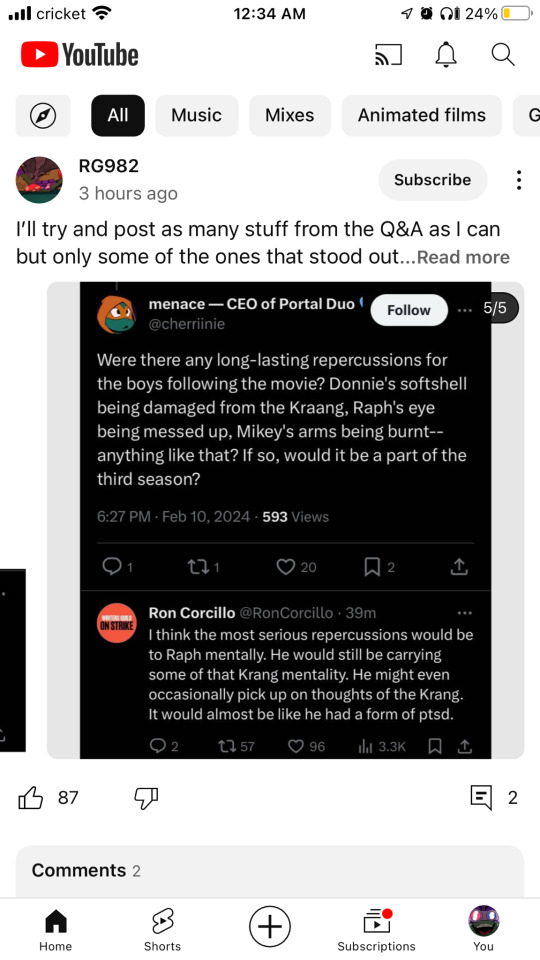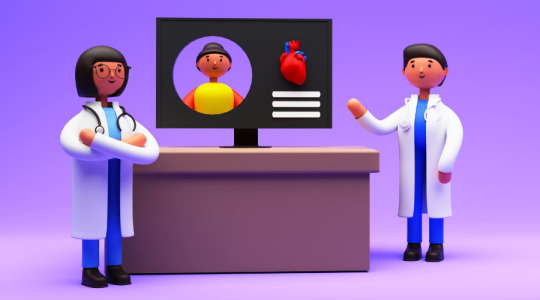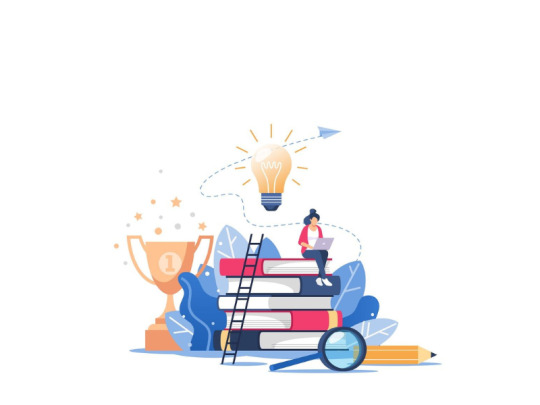#or it teaches misconceptions about mental issues
Text
You guys ever think about how the episode where Rise Raph was “Weird” for an episode? (“Man Vs. Sewer”) And how out of place it seemed? I mean what made my boi like this?? Cause, looking at the previous tmnt iterations, it was probably a concept in which the writers were trying to combine “Leatherhead” with “Raphael”. A character you don’t see in rottmnt.
Cause Leatherhead is an alligator. A gentle sweet soul. Raph is an alligator snapping turtle. And a sweet soul. They are both, ridiculously huge in stature. Towering over the turtles.


And they both get weird.
The whole concept of Leatherhead is that he is a character that is very sweet and kind. He started out as a baby alligator. But due to the oddity of his mutation, succumbs to “animal instincts” as a mental defense mechanism. Acting like how a provoked alligator would. And accidentally hurting the ones he loves because of it. I find the fact he and Raph were both originally baby animals that were mutated to be a potential connection.


Is this what’s up with Raph? An odd mutation that makes Raph lose himself when he can’t handle something? His instincts taking over to protect himself? An odd mutation caused from perhaps an interrupted process designed to make them be weapons of war? Or would allowing the full mutation have made the turtles more feral, monstrous? Perfect to destroy all of humanity.
I want to say that 03 Leatherhead had more of an impact on this choice. 03 is specifically very kind. And the brothers welcomed him in their lair. Excitedly and basically called him brother.
In 03 it seems to be more in his “nature” that he needed help to get through with. But be an allegory for trauma for ptsd (I think). In 12 he was tortured from the beginning implying a combination of trauma and the nature of his mutation. Either way, trauma makes this “defense mechanism” worse, as in 03 after being tortured by “Bishop”, his episodes become worse.
I think 03 wrote a very compelling episode, and I think Rise could have taken the episode in a different direction if this was their idea. Regardless, it has some interesting implications.
Because, what would happen to a turtle who gets “weird” after being possessed by the Krang?



His episodes would get worse.
In rottmnt.
Raph IS. Leatherhead.


#rottmnt#rottmnt raph#leatherhead#tmnt leatherhead#leatherhead is a story that must be written carefully#or it teaches misconceptions about mental issues#I mean does it already??#anyway I like the DID Raph head cannon (also a thing that should be written with care)#anyway has anyone read The Eldest Brother? :)#great fic
27 notes
·
View notes
Text
Just thought I’d deposit this quote here for no particular reason
“ The heart of this humdinger question is that the word “attachment” means one thing in the context of parenting and another in the context of Buddhist teachings. The association of the word “attachment” with parenting has its origins in the phrase “attachment parenting”, a theory of child-rearing developed by pediatrician William Sears in the 1980s. In parenting, attachment is thought to provide a foundational sense of safety and security, giving a child the courage to explore and thus learn essential facts about their world. Your concern for your children’s well-being and safety comes from a healthy, natural bonding derived from empathy, care, and love – none of which are against the dharma.
In the Buddhist world, attachment is understood as a mental factor, a psychological pattern that is a mega-cause of suffering. However, the neutral sense of the English word “attachment” doesn’t convey the potency and misery of what Buddhists mean by it. Buddhist texts use the Sanskrit word trsna, an English-language cognate of which is the word “thirst”. “Thirst” accurately conveys the sense of need that characterizes this mental state. We are thirsty for sense gratification, thirsty for experiences. Other translations of this kind of attachment are “clinging”, “craving”, and “desire”. Although it doesn’t sound human to say, “Don’t be attached to your children,” it does sound right to say, “Don’t cling to them.” (We even disapprove of overly clingy parents.)
Nonetheless, the Buddhist notion of attachment, as craving, can teach us something about parenting pitfalls. Since we can crave just about anything, it’s possible to develop a sticky clinginess to our own children. For example, we might crave their demonstrations of affection, respect, or loyalty. We can become attached to our children behaving or performing in a particular way, believing that our child should be a good soccer player, academically successful, polite to others, and so on, because we are worried about our own public image, self-worth, unresolved issues, or value as a “good” parent. This kind of attachment is primarily self-centered, serving our own needs. As many of us know from experience, staking our happiness on a child fulfilling our expectations invariably results in suffering. (Although I’m quite certain that the moment my children stop leaving dirty socks around the house, my life will be perfect.) In the final analysis of this type of clingy attachment, it’s not so much that we are directly attached to our children as we are attached to our misconception of what will bring us happiness.
The parenting notion of attachment as bonding can also teach us something about parenting potential. In fact, the Buddha himself urges us to create the “bonds of fellowship”, as taught in the Sangaha Sutta. Through generosity, kind words, beneficial help, and consistency in the face of changing conditions, he said, parents sustain a favorable, respectful relationship with their children. In other words, parenting is dharma practice. Far from trying to detach ourselves from our children, our relationship with our children is an amazing ground on which we can practice attunement, the gift of creating safety, generosity, aid, and unconditional love. This in turn develops our capacity to feel the same bonds of fellowship for the children of others – and for others as once-children. In the end, we are called to discover the bonds of fellowship we have with all beings. “ - Sumi Loudon Kim
384 notes
·
View notes
Text
Where in the world is Ribon?
As you've noticed, for the last about three months, the blog has gone back and forth between guest writers and queue. The blog was moved (without my knowledge) and longform writing stopped. Recently, girly.zyoshi also went on break. So where have I been? Is this the end of Ribon-tan and girly kei tips?
Short answer: No. I'm not quitting girly tips, and I don't intend to any time soon. That being said, some things will be changing.
When I started girly-kei-tips, it was a spin off blog of girly-kei-otd, in the style of old school jfashion blogs like fairykeitips, lolitatips, menheratips, etc. I'd been wearing Girly and lurking in the "larme kei" community for years, but what finally pushed me to gather resources for people looking to get into the style was the overwhelming influx of misinformation about a select few substyles and silhouettes. The jfashion community has grown in the years since tiktok, and with it has grown the number of newbies and misinformation- as well as a new "veterans correcting incorrect info is elitist gatekeeping" sort of idea circulating, at first most prevalent with baby gyaru, then lolitas, and now with menhera and Girly. I wanted to find a way to teach people new to jfashion about Girly and create a community of wearers that was as active as the "larme kei" communities of the mid 2010s were. So after an interest poll on girly-kei-otd, I wrote my first major article about the (at the time) current misconceptions newcomers to Girly had.
It circulated much faster than I expected it to! Of course, since posting that I have been bombarded with harassment, from simply reblogging with such creative stantwt-esque rebuttals as "me when i lie" to attempted doxxing, death threats, and full blown conspiracies trying to assert that I'm actually like 10 other people, not really mentally ill, hate Japan, dont really wear jfashion, etc. However, that's never effected me as much as seeing the information I translated and broke down reaching platforms I'm not even on, and encouraging people who were new to or had stepped back from Girly to rejoin the community! This only motivated me to keep going, so I did!
However, no amount of passion for something can entirely combat the reality that I am a mentally ill and disabled person who has been juggling recovery, university, a job, an irl social life, and suddenly being thrust into the position of "spokesperson for the Girly community". I became incredibly burnt out due to the sheer amount of having to repeat myself over and over, as well as a lack of energy due to struggles with mental and physical health entirely unrelated to the project. When I had an unrelated severe bpd episode, I knew I needed to temporarily step back. I had two friends who run their own jfashion projects take over for me so I could focus on survival and recovery- but it had an unintended consequence.
Unfortunately, the most common conspiracy theory used to devalue any information I give or agree with is that I am the entire Girly community, and the menhera community as well. So, when the responses from my blog seemed less like Ribon and more like runners of other popular blogs, this seemed to validate that belief in some. On top of that, language barrier issues as well as differences in opinion lead to seemingly contradictory information coming out of girly tips. Suddenly, every time I was meant to come back, I had to deal with another misunderstanding, edit another post, freak out thinking my blog was deleted when it was actually moved- no one was being malicious, there were just too many chefs in the kitchen, so to speak. This just made my mental state deteriorate even more, and make me feel even more unfit to resume activities.
This level of burnout lead me to take the extended break that I took, and starting girly.zyoshi really helped me get out of that rut- but then Instagram began to not show our posts. Apparently, this is common with kaiwai accounts- frequent posts with similar hashtags get marked as spam. After discussions with customer support, the solution was to take a break from posting so that the account doesn't get nuked before starting back over. Unfortunately, combined with my absence from the blog, this made it look as though I had abandoned my projects entirely.
So, what now? Well, I'm going to be back to making original posts and answering questions again. However, to prevent a burnout from happening again, it's never going to go back to the insane frequency of original articles I was putting out in the beginning months. The kaiwai account is also resuming activity- but limited to 2 or 3 posts a week! And yes, the Discord, which was deleted many months ago, will be staying down. To make up for this lack of original content, I'll continue to leave the blog running a daily queue as well between posts.
While I have the opportunity to do so, I'd also like to make one thing clear, AGAIN. I do not hate mentally ill people. I do not hate people who "fit" the landmine stereotype. This is a fact that seems to have been overlooked in favor of the "don't listen to that person, they just hate people who struggle" approach to combatting the information I provide. I also do not condone harassment, EVER. I don't care what for. Before deleting the Discord due to member safety concerns, I had to re-enforce that rule many times. Someone identifying as jirai or spreading the misinformation that jirai is a fashion or a movement is ABSOLUTELY not an excuse fo make fun of them. If you came to the conclusion that it is justified to bully people who post misinformation because of my blog, you have severely misread the purpose of my blog and I do not want you here.
I myself am severely mentally ill. I struggle with many aspects of illness that are the most fetishized in the landmine lifestyle. I have diagnosed BPD, as well as a severe dissociative disorder and cPTSD. I am not against mentally ill people doing their best to survive. I am not "anti" anyone's coping mechanisms- after all, even bad coping mechanisms are better than no coping mechanisms and can be the difference between life and death. I do not have anything against people like me- people who struggle to maintain healthy relationships, who struggle with chronic suicidal ideation, who have mood swings, etc. I have nothing against people who are stuck in unhealthy lifestyles because the alternative is death. My issue is the trying to make struggling with these illnesses and living dangerous lifestlyes cute and trendy- which is what the Japanese jirai scene is all about. Wherever you are in life- if it's living a "landmine lifestyle" of binge drinking and unsafe work, or if you're coping healthily, or somewhere in between- it's okay. You're okay, and I'm proud of you. What's not okay is trying to sanitize what the lifestyle and term are- they aren't feminist, they aren't safe and fun, they aren't cute and desirable. And it's also not okay to try to spread misinformation about fashions to try to support this Western fanfiction that there is a feminist fashion and culture movement called landmine about freeing mentally ill girls by denying that Girly/girly kei exists.
I hope this helps explain some things, but I haven't proofread. So please, if you have any questions, anon asks are on for the time being. Thanks so much for your support, and I'm excited to see you in a text post I have in the works! -Ribon
48 notes
·
View notes
Text
One of the most irritating stereotypes that surround astrology for me is the belief that Saturn is a “bad” planet.

Astrology is meant to be a tool of self-reflection, it teaches us things about ourselves that we can’t recognize easily. I am a firm believer that difficult situations teach us the most about ourselves and can really help us align with our purpose in life. Saturn, notoriously known as the “bad” planet, is the key to this.
SATURN DELAYS BUT NEVER DENIES.
For those of you who are just getting started with astrology you should know that Saturn does not “doom” the area of your life where it sits natally, but it calls for you to take action and work hard to confront the issues that may arise in that area.
What most people don’t know is that Saturn never lets hard work go unrecognized. In fact, if you put in the work, Saturn gives wonderful gifts.
For example, last Saturday I had the pleasure of reading the charts of one of my clients who had Saturn in her 2nd house.
She grew up in a third world country in an extremely poor family. In her early years, her family dealt with poverty, homelessness thus creating a lot of issue around her self-worth and confidence. Luckily, she stayed strong through out it and worked her ass off despite the circumstances she was given.
At the present moment, she is now a million dollar real estate agent who sells luxury homes all over the world. Funnily enough, she told me after her Saturn Return (age 27-28) is when she really started to gain more confidence in her money making abilities and her own gifts.
This placement also indicate people who tend to make wealth during the second half of their life which definitely holds true. Her true wealth status wasn’t really fermented until she entered her mid-40’s.
The most common misconception about Saturn is that this is the area of life where you will experience the most misfortune when in reality, it is the area of life where a little more work has to be put in.
As a late degree pisces rising, I am currently going through my Saturn in the 12th transit untill 2026. It has been wild to say the least, but it has also inspired me to get more serious about my mental health and confront the shadow sides of myself that I have been repressing all these years (I have 5 Aquarius placements in my big six so naturally I am not the emotional type).
For those of you who feel anxious about Saturn placements/transits know that the best thing that you can do is work through it and not run from it.
Where does your Saturn sit in your chart?
Have you been putting in the work?
DO NOT FEAR SATURN AND LEARN TO WORK WITH IT!
33 notes
·
View notes
Note
What are the relationships like with between the Crux? What about the Crux with their families?
Alrighty, this’ll be long so bear with me, this took me a while because I had to write sm
Anyways these are from the perspective of everyone a few months after the group is established.
Pandora:
-> Noah, “I don’t mind the murder but I do mind your declining mental stability. I worry about you, a lot, I want you to be okay.”
-> Ambrose, “Big brother :)”
-> Constance, “Big sister :) (despite us being the same age)”
-> Nico, “I’m always here if you wanna learn the basics of necromancy, you are my buddy :)”
-> Nathaniel, “why are you so mean to me? :(“
-> Natasha, “Very overprotective, feels like home in a way…”
-> Lilith, “How do you have any sexual attraction to anyone and everyone like how does that work?”
-> Karissa, “I like your singing voice!”
-> Josiah, “you are in a similar situation that I am and I appreciate you not hating me bc of the misconceptions surrounding Maveth.”
-> Barbara, “Crux mum”
-> Owen, “Crux dad”
-> Chance, “I like your accent funny man >:)”
-> Amelia, “Fellow noble *nods in understanding*”
Noah:
-> Pandora, “Why do you care so much about me…? Worry about yourself some more will ya…?”
-> Ambrose, “Quiet, but I speak enough for the both of us. You’re a good listener”
-> Constance, “Stop nagging me.”
-> Nico, “Coward… but maybe that’s okay sometimes.”
-> Nathaniel, “*glares in mutual “I’m a huge dick to everyone but don’t want to admit it” energy*”
-> Natasha, “I don’t really know you.”
-> Lilith, “I see, so you’re trying to seduce everyone because you have issues. Understandable, I’ll leave you to it”
-> Josiah, “ugh, holy people…”
-> Karissa, “Banger tunes my fella”
-> Owen, “Idfc if he’s not my real dad he’s still my dad in my eyes.”
-> Barbara, “The cooler mom”
-> Chance, “I like your gun >:)”
-> Amelia, “…thanks for giving me the sleeping tonic”
Ambrose:
-> Pandora, “You need help. And badly.”
-> Noah, “I like our conversations, but there’s still a lot you won’t tell me.”
-> Constance, “Please be careful…”
-> Nico, “Don’t be afraid to yell at someone, sometimes that’s the only way you can defend yourself.”
-> Nathaniel, “Address your daddy issues, thanks”
-> Natasha, “You seem to be in the shadow of a role you never wanted to be in to begin with. I… I get that.”
-> Lilith, “Are you good? Like emotionally?”
-> Josiah, “I hope you don’t view me as something horrible because of my connections to Avantee”
-> Karissa, “You tell some pretty awesome stories, I hope you find your parents. Mine? Yeah no I don’t care about my parents.”
-> Owen, “I’m so sorry for all you have to deal with in this group.”
-> Barbara, “I respect someone who is willing to murder people who hurt them while still maintaining their confidence and dignity”
-> Chance, “I don’t know how to feel”
-> Amelia, “thanks for the medicine.”
Constance:
-> Pandora, “You’re not okay, even if you like to act and think that you are.”
-> Noah, “You aren’t okay either, address your shit please.”
-> Ambrose, “I am being careful! Stop hovering! >:T”
-> Nico, “I like your staff. Looks cool.”
-> Nathaniel, “you may be a dick to everyone but I think I know why, I’m always here if you wanna chat.”
-> Natasha, “I want to shake your hand in mutual understanding about being forced into the role of our parents.”
-> Lilith, “hm. That’s someone who is using their good looks and charm to cover up the fact that they’re lonely”
-> Josiah, “Don’t even think about mentioning Avantee or Vin’nyla.”
-> Karissa, “Adopted little sister.”
-> Owen, “I’ll help to make things less painful as much as I can.”
-> Barbara, “why couldn’t you have been my mom damn it?”
-> Chance, “idk how to feel.”
-> Amelia, “ohhh, can you teach me some alchemy?”
Nico:
-> Pandora, “Hey you’re like me, maybe we can like, help each other out?”
-> Noah, “why are you so obsessed with electricity and fire…? Also please stay away from me, you scare me.”
-> Ambrose, “scary…”
-> Constance, “Very protective but still kinda scary”
-> Nathaniel, “You don’t have to be like mom…”
-> Natasha, “You don’t have to be like dad…”
-> Lilith, “please stop flirting with everyone. Even if it does sometimes get us out of bad situations”
-> Josiah, “You’re pretty cool, you know a lot about the gods.”
-> Karissa, “I like your stories, reminds me of mom to be honest.”
-> Owen, “ah… why are so many of you scary?”
-> Barbara, “not a huge fan of your gun… or Pandora, Noah’s, or Chance’s guns for that matter.”
-> Chance, “You feel safe to be around, which is weird because you’re kinda loud”.
-> Amelia, “you’re like, the only person who actually gets me besides Karissa and Pandora”
Nathaniel
-> Pandora, “Great. Another person willing to do the gods’ bidding. For both your and my sake, I hope the god of death changes his mind.”
-> Noah, “*glares in mutual “I’m a huge dick to everyone but don’t want to admit it” energy*”
-> Ambrose, “Get off my ass will you?! Demonic ass…”
-> Constance, “What is it with the demons in this group and wanting to boss me around?”
-> Nico, “Make up your mind.”
-> Natasha, “Stop sucking up to dad.”
-> Lilith, “Gross.”
-> Karissa, “Another demon, great.”
-> Owen, “Finally, someone who actually listens”
-> Barbara, “You listen but I’m not sure I like you.”
-> Chance, “Get away from me cyborg.”
-> Amelia, “Thanks for patching me up I guess.”
Natasha:
-> Pandora, “The next champion of death? Maybe you could help me?”
-> Noah, “Reckless fool.”
-> Ambrose, “A friend and ally”
-> Constance, “Also a friend and ally”
-> Nico, “Pick a side, please.”
-> Nathaniel, “Stop trying to force me to be like mom when you already so badly want to be like her.”
-> Lilith, “Could you teach me how to flirt/get into a relationship. I have someone I might like…”
-> Josiah, “You know a lot about the gods, maybe you could help me too?”
-> Karissa, “Your music sounds great, have you heard of soul singing?”
-> Owen, “That’s one hell of a hammer. Keep it away from me please.”
-> Barbara, “You’re pretty cool, still kinda scary though.”
-> Chance, “how are you not dead.”
-> Amelia, “Oh I guess that’s how he’s not dead”
Lilith
-> Pandora, “You feel… no sexual attraction??? How is that possible??”
-> Noah, “You’re murdering your abusers. Okay, I’ll leave you to it my dude.”
-> Ambrose, “Shit he knows doesn’t he?”
-> Constance, “Shit she knows doesn’t she?”
-> Nathaniel, “dude literally stop being an ass to everyone.”
-> Nico, “I could help you with your confidence if you’d like!”
-> Natasha, “oh I could totally teach you how to pick up a partner uwu”
-> Josiah, “Hey dude, you alright? You haven’t been right since Asterope reached out…”
-> Karissa, “You hide behind your bubbly persona when you’re really hurting…”
-> Owen, “Pour me another shot old man! >:D”
-> Barbara, “Badass woman, love it.”
-> Chance, “ayyy! Fellow alcoholic!”
-> Amelia, “Doctor lady. You’ve seen shit haven’t you?”
Josiah
-> Pandora, “You’re in a similar situation that I’m in, but you seem to be less equipped than I am. Maybe I could help?”
-> Noah, “You are a very scary man. I don’t take kindly to how much you engage in murder, but your reason is honorable at least.”
-> Ambrose, “Maybe tieflings aren’t as bad as I thought…”
-> Constance, “You fight for what’s right, I was wrong about you.”
-> Nathaniel, “You need to look in yourself and address why you feel so angry.”
-> Natasha, “I know what it’s like to be in someone else’s shadow…”
-> Nico, “You’re conflicted, but that’s alright. You’re not supposed to have everything figured out.”
-> Lilith, “I’m fine…”
-> Karissa, “You’re getting better at using fire in combative ways!”
-> Owen, “You are a criminal…”
-> Barbara, “You are also a criminal…”
-> Chance, “I think you’ve had divine intervention. No normal person would’ve survived your injuries”
-> Amelia, “I’m sorry that people of my beliefs have tried to kill you, your distrust of me is founded and I respect it.”
Karissa:
-> Pandora, “You’re super cute! Love your hair :)”
-> Noah, “I’m glad you like my music!”
-> Ambrose, “big brother”
-> Constance, “big sister”
-> Nico, “I could play you a song if you’d like, just to ease the nerves”
-> Nathaniel, “Wow, rude.”
-> Natasha, “Maybe I could take your mind off of the situation for a little bit?”
-> Lilith, “Got any new songs? I was thinking we could sing about each of the members of The Crux once we know them better!”
-> Josiah, “thanks for keeping Lilith and I grounded Josie”
-> Owen, “yikes, scary…”
-> Barbara, “scary but in like, a mom way.”
-> Chance, “You seem like you have plenty of stories to tell, tell me them all! I want to sing about them!”
-> Amelia, “Thanks for the fire resistance but I’m a tiefling lol.”
Chance:
-> Pandora, “Champion huh? Ain’t you a special snowflake.”
-> Noah, “I respect what you’re doin’ kid, I’m all for it.”
-> Ambrose, “It’s the quiet ones that getcha”
-> Constance, “Yeah yeah stop badgering me…”
-> Nico, “My guy, you need to toughen up a little bit like your brother”
-> Nathaniel, “Okay maybe not that tough”
-> Natasha, “Go your own way kid, don’t stick in the shadow of your daddy”
-> Lilith, “Now that’s a way of life I can get behind”
-> Josiah, “A religious man, I respect that.”
-> Karissa, “You mind tellin’ me what your life used to be like, sounds interestin’ :)”
-> Owen, “That’s a whole ass criminal right there”
-> Barbara, “Glad to see you’ve improved Barb.”
-> Amelia, “For a “witch” you’re a pretty nice person”
Barbara:
-> Pandora, “Another rich kid… at least you don’t seem to be as bad as the others.”
-> Noah, “Hon I appreciate what you’re doing but uh, ya all right?”
-> Ambrose, “You and your sister are alright.”
-> Constance, “callin’ me out for bein’ an ass. I respect that.”
-> Nico, “hon you need to grow a thicker skin, I’m not expecting you to be perfect at first though.”
-> Nathaniel, “Well aren’t you a bundle of issues? I’m here when you wanna talk little boy.”
-> Natasha, “Another follower of the god of death? Seems we might get along.”
-> Lilith, “Be careful who you trust sugar.”
-> Josiah, “I hope the paladin thing works out for you.”
-> Karissa, “Running away and joining a group you never intended to be a part of… sounds familiar.”
-> Owen, “Lord, please take care of yourself. I’ll uh… I’ll kick your ass if you leave me with all these kids by myself.”
-> Chance, “Good to see you, Sheriff”
-> Amelia, “Glad we got to you before those townsfolk did.”
Owen:
-> Pandora, “You’re one of Diana and Alexander’s kids, aren’t you?”
-> Noah, “Sorry about your mom, kid.”
-> Ambrose, “I hope your brother sees the wrong in what he’s doing…”
-> Constance, “I hope you learn to detach yourself from your parents”
-> Nico, “Try not to be scared of everything kid, there’s too much good in the world to be scared of everything.”
-> Nathaniel, “…”
-> Natasha, “See yourself for who you are and not what you think you should be.”
-> Lilith, “You can have alcohol so long as you clean up after yourself.”
-> Josiah, “You and your sis are polar opposites”
-> Karissa, “Try to be a little more cautious, there’s still some shitty people out there.”
-> Barbara, “Yeah yeah, I’m trying…”
-> Chance, “Good on you for surviving, I can help you with your prosthetics if you’d like, got a few of my own actually…”
-> Amelia, “Thanks for helping with the pain, I appreciate it more than you know.”
Amelia:
-> Pandora, “I wish I could fix your situation… I wish I had something to fix your undead-ness”
-> Noah, “You aren’t human, are you?”
-> Ambrose, “I have just the thing to help you with your muscle pains!”
-> Constance, “I have something to help you in you and your brother’s fight against your literal demons”
-> Nico, “Ohhh! That’s a creative way to build a prosthetic :0”
-> Nathaniel, “You’re so reckless and yet so careful”
-> Natasha, “I have a mana potion if you need it for practice”
-> Lilith, “You’re not getting a health tonic after this, you get drunk too much, and I need those tonics for something else.”
-> Josiah, “I may have something that could help with the visions if you’d like…?”
-> Karissa, “A fire protectant potion just for you!”
-> Owen, “I wonder if the health and regeneration tonics are helping him…”
-> Barbara, “You’re pretty healthy! Good job!”
-> Chance, “stop being so careless you jerk >:T”
#the crux#bowl mixes#what the crux thinks of each other#writeblr#writing#writers on tumblr#original character#oc#original story#original oc#original writing#writeblr community#long post
4 notes
·
View notes
Note
abuse tw
It is so hard for me to understand, why my mom is abusive. She's such a mixed person. Sometimes she's really, honestly nice and caring and on other days she's angry, violent. But she doesn't seem to bother, she never said "sorry" for her violent outbursts, when she's "nice mom". And when she's violent, she isn't cold. Not old-school "I need to do this to teach my child consequences". She's burning with rage. She also never seems to bother, why she has such moodswings and if I am completely honest, I don't know if she remembers it. I sometimes ask myself, if she has some kind of DID. But I don't want to say that out loud, because DID has a bad enough reputation, don't need to contribute to it.
It just is, so weird to me. What's going on inside of her? Why does she switch, her mood swing that much, that quickly? What's the matter? Does she even remember, being violent? Does she remember, why I am so afraid of her? She's made an appointment for a neurologist (after talking about it for 10 years at least) because even she notices her memory loss (and she does for many years).
It is so weird, for me, mental illnesses always were... consequences of being a victim. All the people I know who have mental illnesses, suffered through abuse or other kinds of trauma. But imagining someone abusive having a mental illness... Seems so wrong to me? Even the people I know with anger issues or emotional issues are always very self reflected and would never act out on others. I never met a "real life harmful stereotype of X".
And I can't say if her moodswings are triggered by outside forces (me not doing something good enough) or if they are seperated from all objective truth, just randomly happening inside of her.
Do my actions even have consequences? Am I doing it, caring, making everything perfect just for nothing? Could I just do nothing, stop being a mom-pleaser and my life would be the same?
This is eating me up... I know it doesn't matter and my moms issues aren't mine. But I would love to know, if this is even about me (subjectively from her point of view). If there is a reason, for all of it. Even, if that wouldn't change much. But being abused "just because" doesn't feel good.
And I would love, if she could "decide" just to either be abusive or nice. So I'd know, what to expect, how to act. Not always on the watch, for a new moodswitch.
Hi anon,
I'm so sorry you've been dealing with that.
I just want to clarify about the DID thing. I can understand why you suspect this as it's a radical emotional shift, but it's rare for systems to attack other people. I wrote about this in my expose:
"There are protectors, and persecutors. Both protect the body - the 'whole' physical person - from further danger, but one does so constructively and the other destructively. A common misconception is that persecutors pose a danger externally, to others outside of the system. This has plagued horror films, most notoriously in Split. I have never, in all the extensive research I have done into DID and other dissociative disorders, heard of a system abusing someone in 'meatspace'. This isn’t impossible - some people with DID can and do abuse others - but it is rare, and more often than not, that violence is internalized instead."
It's fairly possible that your mom has anger issues. But please understand that, at the end of the day, mental illnesses and other issues don't abuse people, people do. Even if your mom has things going on that may influence or catalyze her behavior, it's still ultimately her decision to behave the way that she does.
The way I see it is that there's ultimately no reason for abuse besides someone making a choice. That can be scary to sit with because anyone is capable of making a choice, so everyone is capable of being abusive.
There's nothing you could do to deserve the way she treats you. There are drastically more emotionally mature ways to react, and as an adult she should be familiar with them. You don't deserve to put up with this, and I'm sorry that your mom is this way.
I hope I could help. Please let us know if you need anything.
-Bun
8 notes
·
View notes
Note
Can you please help me find my purpose? My 10th house Chiron and all this Saturn makes it so difficult

helloo, how are you doing? i hope ur doing well
what do i see about your life purpose?
Spiritual/emotional/mental healing* and teaching through transmission of deeper knowledge*.
such as: teaching about a philosophy of life or simply about how things work on a spiritual level. holistic therapy, guiding people who are spiritually lost, who feel aimless, which reverberates on the earth plane, on their material life and experiences.
or else traditional therapy (psychology), to deal with the mental, emotional and psychological issues of people, without having a spiritual contact. however, regardless of whether it is holistic or "traditional" therapy, i don't see just therapy or any kind of healing work. what i see is being a teacher and a therapist at the same time. this is what i see on your chart.
i'll explain why.
*healing in yourself and others, necessarily, through an exchange (when you help people, this resonates on you, helping your own wounds).
*deeper knowledge = beliefs, philosophies, faith, ways of living, something that actually impacts someone's life. something that is transformative.
When we are going to look at our life purpose, career, in addition to looking at the points that are directly related to it - such as Medium Coeli, placements with 10th house, asteroids such as Industria etc -, we also have to use the rest of the chart to understand how our essence works, what pleases us, and what are our challenges (also because our challenges can and will help us in the purpose of life).
Speaking of your natal chart, i see that Chiron in the 10th house already points to a purpose of healing and constant teaching. that means to say: you'll find more about yourself by helping others (Chiron). this is your calling, your purpose.
it also means that you will improve on your inner challenges, difficulties and obstacles by studying more about them and at the same time teaching someone else about it (Saturn). it's important to have this exchange: learning, teaching; learn to teach; learn to teach. or better still: learn, release; learn, release; learn, release.
I say this about "releasing" because Sagittarius in the 10th represents an urgency of spiritual fulfillment, the love for life, which not all natives consciously seek, but this is the essence of the placement: restlessness about understanding the deeper meanings of life, desire to live this in collective experiences, in the outside world (since the 10th house is the outside world, the arena of social relations on a more solid, earthly level).
Sagittarius Midheaven, along with Chiron Capricorn 10th house brings this need for HEALING in the career, in the feeling of each one's encounter with life. healing in the concept of what a career is, what a purpose in life is (the person may not feel worthy or have misconceptions). In short, several possibilities. but the keywords I see are: HEALING, TEACHING AND DEEP KNOWLEDGE (about the spiritual side of life or our life path in general).
Sagittarius is the trust in things, trust in the process (that's why Sagittarian tend to not be an immediate human who has an urgency to solve everything, he lets go, he allows, he trusts, and he wants to pass the same trust to others), trust in the universe, understanding the functioning of what brought us here - within the possibilities of explanation, understanding the spiritual laws, how we are ruled by energies, the beliefs that sustain us, the human diversity that creates the depth of who we are, etc.
but as you have Chiron in the 10th, you have a deep insecurity with earthly life. and it can impact your view of life, of what life is for you in that social sense (career, life path), wound of what the universe has to you. this can keep you from understanding things in a spiritual and lighter way, making you a person who always seeks a material "urgency", because the wound is there, in that area. in security. in the sense of purpose.
When I say all this, your mind may think: "teaching career?"
"teaching career?". we no longer need to view certain professions based on preconceived ideas. today there are, more than ever, different possibilities of what to be. you can be a teacher without actually being linked to an institution, working autonomously. you can be a therapist, without actually being a traditional therapist. you can be a holistic therapist, working with the study of spirituality, but still of the mind, still teaching people. it all depends on what you want. but these potentials I already see in you.
the door to get in touch with the spiritual realm you already have,
just access this (if you're interested, of course): Sun and Mercury in Scorpio, both in 8th house. a lot of psychic energy having contact and exchange with spiritual matters, and I'm not talking necessarily about religion. spirituality in the sense of the energies themselves, of the things that surround us.
in addition, you have Pisces rising, which increases your ability to perceive things around you, to intuitively capture what few see, but that exists: energies, things "invisible" to our earthly plane, but that influence us. the thoughts of others, the sensations of others, the emotions, the energy of the environment, Pisces is capable of feeling all these things, and your Ascendant can bring a lot of openness to this.
Moon in 12th house is another "portal" to things that are invisible,
but that affect us a lot, people's energies, our energies, the energies of the environments, everything that involves energy, good and evil, sorrow, happiness, fluctuations, everything it is felt on an emotional level. you probably have to deal a lot with sensations of things that don't belong to you, but that you pick up from around you.
if this is used for your good and in a conscious way, wow, it will be quite a tool for your self-knowledge and growth!
and I spoke about Saturn because,
although your Saturn is in Cancer in the 4th house, it is conjunct the asteroid Industria, so, Saturn has the same placement as Industria. so it certainly brings difficulties in this trajectory of discovering the area that seems ideal for you.
it brings a feeling of being "out" of the concrete world, of not being part of or, in some way, not being able to reach their earthly, material planes. if so, I hope you can, from this answer, have more clarity in your thoughts.
for me, the asteroid Industria (389) has a lot to do with the area we are going to search for in career. being in Cancer and in the 4th house, it refers to careers that involve care. but not just any care: emotional care, dealing with others' emotional issues. which adds one more ingredient to what I said above, including reinforcing the ideas I expressed about your life purpose.
asteroids show the energies that we will feel more subtly (within what they represent), but to have more strength in acting, aspects are neeeded, especially with personal planets or with Jupiter and Saturn (as is your case).
I couldn't see the cusp houses, but I wanted to ask if you have intercepted houses, from what I've seen, it looks like you do. 2x Gemini and 2x Sagittarius, intercepted signs: Aries and Libra.
this can give you a lack of feeling that you are capable of initiating things, of going out there and doing something. in the same way, the area of relationships can also be an area with some problems arising during your life. therefore, try to nurture more of the Aries and Libra sides in your personality.
it could be that there is a lack of energy to initiate things, as well as a difficulty with balancing things and entering into relationships. it can also affect career, life purpose, so I talked about that.
hope it was helpful!
#chiron in 10th house#chiron in capricorn#saturn conjunct industria cancer#moon in 12th house#sun in scorpio#sun in scorpio 8th house#mercury in scorpio 8th house#sagittarius midheaven#mc in sagittarius#ask
18 notes
·
View notes
Text
Nurturing Minds: The Profound Impact of Mental Health Counseling

In the vast landscape of healthcare, mental health counseling stands out as a beacon of hope and support for individuals navigating the complexities of their inner worlds. With increasing awareness and understanding of mental health issues, the demand for counseling services continues to grow, offering solace and guidance to those grappling with a myriad of challenges. In this article, we delve into the profound impact of mental health counseling, exploring its significance, benefits, and transformative potential.
The Importance of Mental Health Counseling
Mental health counseling plays a vital role in promoting emotional well-being, resilience, and overall quality of life. It provides a safe and confidential space for individuals to explore their thoughts, feelings, and experiences, free from judgment or stigma. By fostering self-awareness, insight, and coping skills, counseling empowers individuals to navigate life's challenges more effectively and build healthier relationships with themselves and others.

Breaking the Stigma
Despite significant strides in mental health awareness, stigma and misconceptions still surround the field of counseling. Many individuals hesitate to seek help due to fear of judgment, shame, or reluctance to acknowledge their struggles. However, mental health counseling offers a compassionate and non-judgmental approach to healing, emphasizing the inherent worth and dignity of every individual. By breaking down barriers and challenging stigma, counseling encourages open dialogue and fosters a culture of acceptance and support.
A Holistic Approach to Healing
Mental health counseling takes a holistic approach to healing, addressing the interconnectedness of mind, body, and spirit. Counselors recognize that mental health issues often manifest in physical symptoms and vice versa, and they work collaboratively with clients to explore these connections and develop comprehensive treatment plans. Through a combination of talk therapy, behavioral techniques, and holistic modalities, counseling addresses the underlying causes of distress and promotes holistic well-being.
Empowering Self-Discovery and Growth
At its core, mental health counseling is about self-discovery and growth. It provides individuals with the tools, resources, and support they need to explore their strengths, values, and aspirations, and to overcome barriers to personal growth. Through reflective questioning, active listening, and empathic understanding, counselors help clients uncover their inner wisdom and tap into their innate potential for resilience and transformation.
Cultivating Coping Skills and Resilience
Life is full of challenges and adversities, and mental health counseling equips individuals with the coping skills and resilience needed to navigate these obstacles effectively. Counselors teach practical strategies for managing stress, anxiety, depression, and other mental health issues, empowering clients to develop healthier coping mechanisms and build emotional resilience. By learning to adapt to life's ups and downs, individuals become better equipped to thrive in the face of adversity.
Enhancing Relationships and Communication
Healthy relationships are essential for mental and emotional well-being, and counseling can help individuals improve their interpersonal skills and communication patterns. Through couples counseling, family therapy, or individual sessions, counselors facilitate constructive dialogue, resolve conflicts, and foster deeper connections among loved ones. By improving communication and fostering empathy and understanding, counseling strengthens relationships and creates a supportive network of care.
Addressing Trauma and Healing Wounds
Many individuals carry deep emotional wounds and unresolved traumas that impact their mental health and well-being. Mental health counseling provides a safe and supportive space for individuals to process trauma, heal emotional wounds, and reclaim their sense of agency and empowerment. Counselors employ evidence-based techniques such as trauma-informed therapy, cognitive-behavioral therapy (CBT), and mindfulness-based interventions to help clients process traumatic experiences and cultivate resilience.

Supporting Recovery and Wellness
For individuals struggling with mental health disorders such as depression, anxiety, PTSD, or substance abuse, counseling offers essential support and guidance on the path to recovery and wellness. Counselors work collaboratively with clients to develop personalized treatment plans tailored to their unique needs and goals. Whether through individual therapy, group counseling, or specialized programs, counseling provides a continuum of care that supports individuals on their journey toward healing and recovery. You can look at this website to get more details about mental health counseling.
Conclusion
In conclusion, mental health counseling is a beacon of healing, hope, and transformation for individuals facing a myriad of challenges. By providing a safe and supportive space for self-exploration, growth, and healing, counseling empowers individuals to reclaim their lives and thrive in mind, body, and spirit. As we continue to break down barriers, challenge stigma, and prioritize mental health and well-being, counseling will play an increasingly vital role in nurturing minds, restoring hope, and fostering resilience in our communities.
1 note
·
View note
Text
How Create A Formal Demand Payment Letter And Avoid A Lawsuit

What will be the reason for this? Happiness stems from being loved and wanted, one of the basic psychological needs in each of us that demands fulfillment. Consumers are willing pay a visit to to any lengths to obtain love. Nations have gone to war, kings have abdicated their thrones, and star-crossed lovers sometimes make suicide pacts - all for are keen on.
lgo4d penipu
I see this all frequently. Fear stands in the way of success for space majority people today that. They investigate the path to achievement clearly laid out before one. As soon they begin they find an issue they didnrrrt expect and they become too embarrassed. Fear of the unexpected contributes to fear of failure. Concern about failure to be able to fear of criticism, Nervous about criticism contributes to fear of exposure. Most of this only occurs in a moment and everyone take set up the thought processes. They are simply states and achieving nothing in to do with reality.
More players will reduce the number of words played by each, but the strategies and alternate possibilities will surely add more excitement too as problems. The main goals remain: have fun and learn efficiently.
Carefully Consider What You want Your Husband Lgo4d To Remember From The Letter Before you Write It And Have To Him: I highly recommend that anyone decide to write any letter, you examine what hope carry out with getting this done. I have to will. Many women admit to me that they write the letter this is because they want their husband to feel guilty or remorseful about the affair. Desire to show him how badly he's hurt these kind of. They want to supply him with a glimpse into just how deeply their feelings drive.
Always reinforce by doing the whole word at the end - and use your finger - pointing to each sound symbol as you say it, while saying the whole word. Fashion then get the children to trace the individual sound symbols (letters)- showing them they are formed- eg 'up, down and around'.
What Think A Letter To A Husband Who Cheated Or Had An Affair Should Include: I just think that well crafted letter can assist a marriage after an affair. But, you have to be wary. Because some letters actually harm the marriage or set it up back for months. Objective power my partner and i think the importance letter holds is so it can eliminate any misconceptions or understandings and it is underscore your intentions along with lgo 4d plans shifting. It truly can set a negative for the days and months ahead.
Life isn't fair. Our life is not comfortable. Life happens. Life is disappointing. Va . boring. Starting in the mid-70s parents decided they required to protect children from Everyone's life. You cannot. Children will have to experience life in order to study to navigate past weed parts. Children who are taught they can say or do anything they wish without consequences fail in life. Life means "no" more times than "yes." The labor pool has taken a serious turn toward the worst because children have not learn this is of "no," discipline, responsibility, honor, pride, or love.
Aging teaches children develop and nurture between reality and fantasy as long as the parent guides your kids through accomplishing this. It is not reality furnish children everything they want because the actual not Life. Children who do not learn right now there is a hierarchy will fail that need be productive on business marketplace. The real world teaches everyone generally there will possibly be someone else to whom they reason. Even someone who owns a organization is accountable to suppliers and customers. The real world proves every day that an adult who throws a tantrum is either mentally ill or immature and to be able to be considered.
1 note
·
View note
Text
Understanding and Navigating Treatment Pathways for Adult ADHD and Anxiety

Life isn't always a calm, steady ship sailing on a serene sea. For many, the waters are filled with currents that tug relentlessly at your course. In these tumultuous lives, navigating the dual challenges of Adult ADHD and Anxiety can feel like steering through a storm—but with the right treatment compass, the voyage becomes far more manageable.
The Labyrinth of Adult ADHD and Anxiety
Both conditions can create their brand of havoc. ADHD, often relegated to childhood, can persist into adulthood, bringing with it a swirl of impulsivity, inattention, and sometimes, hyperactivity. Meanwhile, anxiety whispers or often screams worries, even amidst the most tranquil of settings.
When these conditions converge, they form a complex maze of symptoms that can obscure underlying issues, making it a challenge to find your path to peace and productivity. Yet, within this labyrinth, there are guideposts, each pointing toward different treatments designed to chart back a sense of control.
Recognizing the Signs
Understanding the signals is the first step to acknowledging the presence of ADHD and anxiety in adult life. Symptoms like chronic restlessness, difficulty in maintaining focus, and trouble with deadlines may point to ADHD, while chronic worry, irritability, and panic attacks are often the hallmarks of anxiety disorders.
It’s essential to treat these symptoms not as character flaws or minor quirks but as legitimate and potentially debilitating conditions that require proper identification and treatment.
The Professional Point of Entry
The importance of an accurate professional evaluation for these conditions cannot be overstated. Just as a faulty compass can send a sailor to uncharted waters, a misdiagnosis can lead to the wrong treatment plan and further distress.
Psychiatrists, psychologists, and other mental health professionals are like cartographers of the mind, skilled at interpreting the language of thoughts and behaviors. Their assessments set the groundwork for a treatment course tailored to the individual’s unique profile.
Navigating the Seas of Treatment
Medication stands as the first mate in treatment for many adults with ADHD and anxiety. For those with ADHD, stimulants like amphetamine salts or methylphenidate can help improve focus, while those with anxiety may find relief in the form of SSRIs or benzodiazepines.
Yet, it's not all a matter of drugging the symptoms into submission. Therapies such as Cognitive Behavioral Therapy (CBT) offer enduring strategies to deal with the root causes of behavior. They’re the map that teaches how to handle anxiety, rather than eliminating it through pharmacology alone.
Steering toward Wellness through Lifestyle
As with any condition, the life built around treatment is crucial. Regular sleep, a healthy diet, and exercise are the provisions that keep the vessel afloat. For ADHD, building routines and structure can act as a bulwark against distraction, and anxiety can often find its match in the calming touch of mindfulness practices.
The Sails of Support
No sailor navigates alone. Support groups and networks keep the path well lit with the knowledge that others have tread the same timbers. Through shared experiences, navigating the seas of daily life with ADHD and anxiety becomes less daunting.
The Aftermath of the Journey
For those who find their way through treatment, the impact can be transformative. Daily endeavors, from simple tasks to complex projects, take on new clarity and order. Personal relationships may flourish as understanding and effective communication set anchor in these interactions.
But it’s not a perfect science. Challenges often persist, and the course may need correction from time to time. Misconceptions about these conditions and their treatments spread among the crew, making understanding and acceptance all the more vital.
Setting Course for the Future
The voyage to understanding and effectively treating ADHD and anxiety is a perpetual one, with new research and insights as the winds of change. The final compass bearing of this post encourages proactive discovery and the sharing of stories, for no two voyages are alike, yet all are worth telling.
For those currently seeking their routes, take heart that treatment, support, and a community guide to your aid. By starting this collective conversation, we can chart better courses for understanding and managing adult ADHD and anxiety. It is not a destination but a direction—one we can all work toward, one blog post at a time.
Seeking New Horizons
This call to action invites you to share your own experiences and to seek professional advice if you suspect these conditions in your life. Your story could well be the beacon another sailor needs in their night, the light that shows they're not alone in the vast sea of mental health treatment. In reaching out and sharing, we all become guides and companions in a venture toward improved mental well-being.
#mental health#healthcare#mental illness#mental wellness#therapy#bipolar disorder#mental health support
0 notes
Text
Addressing the Mental Health Crisis in Schools: Support Systems and Interventions
In recent years, there has been growing recognition of the mental health challenges faced by students in educational settings. From anxiety and depression to stress-related disorders, these issues can significantly impact a student's ability to learn and thrive. As educators, administrators, and policymakers grapple with this crisis, it's crucial to explore effective support systems and interventions that can make a meaningful difference in students' lives.
Understanding the Scope of the Problem:
Before delving into potential solutions, it's essential to grasp the scope of the mental health crisis in schools. Studies indicate a concerning rise in mental health issues among students, with factors such as academic pressure, social media influence, and family dynamics contributing to the stressors they face. According to the National Alliance on Mental Illness (NAMI), approximately one in five youth aged 13-18 experiences a severe mental disorder at some point during their life. These statistics underscore the urgent need for action.
Creating a Supportive Environment:
One of the primary responsibilities of educators and school administrators is to foster a supportive environment where students feel safe and valued. This involves not only addressing academic needs but also prioritizing mental and emotional well-being. Implementing initiatives such as peer support groups, mental health awareness campaigns, and mindfulness practices can help create a culture of openness and acceptance within the school community.
Providing Accessible Resources:
Access to mental health resources is critical for students who may be struggling with their emotional health. Schools should strive to offer easily accessible counseling services staffed by qualified professionals trained in adolescent mental health. Additionally, partnerships with local mental health organizations can expand the range of support available to students, providing avenues for therapy, support groups, and crisis intervention when needed.
Promoting Resilience and Coping Skills:
Equipping students with resilience-building techniques and coping skills is another essential aspect of addressing the mental health crisis in schools. Educators can integrate social-emotional learning (SEL) into the curriculum, teaching skills such as emotional regulation, stress management, and conflict resolution. By empowering students to navigate life's challenges effectively, schools can help bolster their mental health and overall well-being.
Destigmatizing Mental Illness:
One of the most significant barriers to seeking help for mental health concerns is the stigma that surrounds mental illness. Schools play a crucial role in challenging these stigmas by promoting open discussions about mental health and fostering a culture of acceptance and understanding. Educating students, teachers, and parents about the realities of mental illness can help reduce misconceptions and encourage individuals to seek the support they need without fear of judgment.
In conclusion, addressing the mental health crisis in schools requires a multifaceted approach that encompasses prevention, intervention, and destigmatization. By creating a supportive environment, providing accessible resources, promoting resilience and coping skills, and challenging stigmas surrounding mental illness, schools can play a vital role in supporting the mental and emotional well-being of their students. It's not just about academic success but about nurturing the whole child and preparing them for a healthy and fulfilling future.
0 notes
Text
Reality Check: Discover the common management myths
Management is the art and ability of a person to get work done by people. Business management is an approach to making our product successful by providing great quality and quantity. However, there are a lot of misconceptions or myths about the management process that could be improved by both managers and aspiring employees in the light of truth. In this article, let us discover some of such myths about management practices and understand the reality.

Management differs from leadership
“Management is doing things right; Leadership is doing the right things” quoted Peter Drucker. As a part of business, there are several ups and downs manager, is one who corrects the wrong steps taken in the organization, whereas the leader does all the planning and takes steps carefully with the team for the uplifting of an organization. Management deals with the daily activities for the smooth running of the company which includes planning, organizing, and resource management. On the other hand, leadership is more about inspiring and motivating other people to achieve the common goals of the company.
One managing style fits all
Each working culture is different and so are the individuals. The strategies applied by a person may not be fit for the other person and situation. As time changes the circumstances will be different, hence the approach to tackle it cannot be the same new problems need new solutions. Effective management needs adaptability, so the skills must be upgraded to handle different teams rather than following the old approach. Flexibility is necessary for success and profit gain.
Only success comes on the way
The biggest myth is that the business is all about success only. The fear of failure often sicks the person or organization from taking risks that can bring a breakthrough. Business is not about success or profit but the failures as well. One must face failure or loss which teaches us a lot more in life. Through those lessons, we can build our steps toward success. We must learn to face the hurdles and always come up stronger with innovative ideas. The acceptance mindset of the authoritative person will motivate the team to come back stronger after a setback.
Less attention on employee well being
People think that organizations will not think about employee’s well-being but in reality, it is not the case. Management should not prioritize the result or output over the employee well being. A truly successful organization will pay attention to the mental well-being, employee satisfaction, and work-life balance of employees which directly contribute to the success. Smart management skills include creating a positive work environment, appreciation of work, and overall well-being of employees.
Working on feedback only on annual meet
During the annual meeting manager should not only give full focus on feedback to employees. There should be other plans and innovative ideas for growth. Meetings need to be done with employees when required instead of waiting for a year to address an annual meeting.
It is easy to address the situation and get feedback from the employees. Being open to different thoughts and ideas can give a special and different solution. Feedback need not be only a downward flow, gaining feedback from direct reports will give the issues within the management and area that need to be focused.
Being extrovert manger
Managers need not be extroverts, yes, they have to communicate with different people but talking to a point can bring effective results. It is not about the nature of extroverts or introverts, understanding the need for communication and clarity in solutions is required. Some extroverts find it difficult to listen to other’s point-of-view and lack in being a good listener which can be a disadvantage in group discussions. Being loud and clear about the thoughts and processes that lead to growth is important.
Conclusion
In conclusion, eliminating these myths of management creates a healthy and effective work culture. Management is a process that requires continuous updating and changes in all evolving trends, motivating the team, doing something out of the box, etc. By irradicating these myths about management, we can create a path for the managing process and gain noteworthy changes in the results.
Visit More : https://apacbusinesstimes.com/reality-check-discover-the-common-management-myths/
0 notes
Text
NetGalley Reviews
Cerebral Palsy 'A Story' is now on Netgalley. If you're on Netgalley and interested in reviewing my book, you know what to do! Below are two recent reviews.
Thank you to Bethany Casey and Kelly Purdy for your reviews.
Bethany Casey - NetGalley Review
Cerebral Palsy: 'A Story'
"Ilana Estelle didn't know she had Cerebral Palsy until she was forty-six years old despite all the signs being there when she was a child. As the second born of a pair of premature twins, she also felt somewhat different from the other children her age, even her twin, but could never fully explain why.
In this stunning debut novel, she not only tells her story but enlightens the reader on what it's really like to live with Cerebral Palsy and teach insightful lessons about the resilience of human nature, about body positivity and health awareness.
Part memoir, part informative guide, part motivational story - this unique and striking novel reads in a warm, friendly, and familiar voice while still giving us the facts and the truth about a very common health issue that the general public know shockingly little about. Of course, every single person is different, and the way any health conditions affect a single person is unique, so by reading just one book a reader can't understand the full scope but Ilana tries to be as inclusive as possible in her writing, both in content and in her easy to follow style.
We feel anger at the discrimination people with Cerebral Palsy and other health conditions face, sadness at the treatment and difficulties they live with, frustration at their lack of choices but also hope as Ilana’s positivity shines through each and every page.
Whether you're just looking to learn, or you've been affected by Cerebral Palsy yourself, this will give you a beautiful starting point on your way to understanding.
"I live with Cerebral Palsy, but I choose not to be defined by it."
Kelly Purdy - NetGalley Review
Cerebral Palsy: 'A Story'
"As a person with cerebral palsy myself, I was very interested in this book. My disability isn't something that I talk about often, except with those closest to me, and I will talk about it if someone asked, but I am always interested to hear about the experiences of others with cerebral palsy. I connected quite deeply with the author's story, and I remember that when I was growing up, I felt as though my disability wasn't properly understood, that there were many misconceptions about it. Parts of this book did make me tearful, but at the same time, I found it uplifting and inspiring. I felt the author expressed herself in a way that enabled everyone to relate to her. This book had a lot of advice on understanding and dealing with cerebral palsy, but it also discussed other disabilities and health issues, as well as offering advice on mental health, boosting self-esteem, and much more. If you have cerebral palsy, or love someone who does, you may enjoy this book."
If you're interested in dealing with your mental health and you fancy grabbing copies of my books, you can order Kindle or paperback copies on Amazon, and through the following link https://linktr.ee/Ilana_Estelle
For more of my book reviews, please check out my site https://www.thecpdiary.com/category/my-books/
#thecpdiary#blog#netgalley#reviews#books#bookreviews#memoir#selfhelp#mentalhealth#healing#self reflection
0 notes
Text
Journal Entry #2
BREAKING THE STIGMA
My teaching philosophy is centered around creating a safe and inclusive learning environment where all students feel valued and supported. My primary objective as a teacher is to foster a positive and empathetic classroom culture that promotes mental well-being and encourages open discussions about mental health.
To reach these goals, I will employ various methods that prioritize the mental health of my students. Firstly, I will incorporate mindfulness and self-care practices into the curriculum, providing students with tools to manage stress and anxiety. For example, I may start each class with a brief mindfulness exercise or allocate time for reflection and journaling.
Additionally, I will integrate mental health education into the curriculum, ensuring that students have a comprehensive understanding of mental health issues, including common misconceptions and stigmas. By discussing real-life examples and case studies, students will develop empathy and learn to challenge stereotypes surrounding mental health.
Assessing students' understanding will involve a combination of traditional assessments and alternative methods that consider their mental well-being. While exams and quizzes are important for evaluating knowledge, I will also incorporate project-based assessments that allow students to express their understanding in creative ways. This approach encourages critical thinking and reduces the pressure associated with traditional exams.
In my discipline, I see teaching as an opportunity to not only impart knowledge but also to empower students to become advocates for mental health. By incorporating real-world applications and encouraging students to engage in discussions and projects related to mental health, I aim to equip them with the skills and knowledge necessary to make a positive impact in their communities.
To continuously improve my teaching, I will actively seek feedback from students, colleagues, and attend professional development workshops focused on mental health in education. By staying informed about the latest research and best practices, I can adapt my teaching methods to better support my students' mental well-being.
Overall, my teaching philosophy aims to break the stigma of mental health by creating a supportive and inclusive learning environment, integrating mental health education into the curriculum, and empowering students to become advocates for mental well-being.
At the core of my teaching philosophy is a commitment to breaking the stigma surrounding mental health. I believe that fostering a supportive and inclusive learning environment is essential for the holistic development of students.
In my classroom, I prioritize open and honest discussions about mental health, creating a safe space where students feel comfortable expressing their thoughts and emotions. I encourage dialogue that promotes empathy, understanding, and destigmatization. By normalizing conversations around mental health, I aim to empower students to seek help when needed and to support one another.
Additionally, I incorporate mindfulness and self-care practices into the curriculum, teaching students the importance of taking care of their mental well-being. Through activities such as meditation, journaling, and reflection, I help students develop self-awareness and emotional resilience.
Furthermore, I collaborate with school counselors and mental health professionals to provide resources and support for students who may be struggling. By working together, we ensure that students receive the necessary assistance and guidance to navigate their mental health challenges.
By integrating this teaching philosophy, I strive to create an environment where mental health is valued, understood, and prioritized. Through education and empathy, we can break the stigma surrounding mental health and empower students to thrive academically, emotionally, and socially.
0 notes
Text
Navigating Borderline Personality Disorder_ The Essential Role of Therapy - Heidi Kling PhD
Borderline Personality Disorder (BPD) is a mental health disorder characterized by ongoing instability in moods, behavior, self-image, and functioning. These experiences often result in impulsive actions and unstable relationships. A person with BPD may experience intense episodes of anger, depression, and anxiety that can last from a few hours to days.
BPD affects approximately 1.4% of the adult population in the United States, disrupting the lives of millions. The impact of BPD is profound, affecting individuals' interpersonal relationships, work life, and mental health. The disorder often co-occurs with other psychiatric problems such as depression, substance abuse, and anxiety disorders, further complicating an individual's life. However, individuals with BPD can lead fulfilling lives with appropriate treatment and therapy.
BPD manifests in various symptoms and behaviors that can differ considerably across individuals. Yet, a few key characteristics are typically associated with this disorder. These include intense emotional swings, impulsive behaviors, chronic feelings of emptiness, and persistent fear of abandonment. Often, individuals with BPD have a distorted self-image and can experience severe mood swings, going from periods of intense anger or sadness to periods of anxiety within a few hours. Dr Heidi Kling
Despite its prevalence, numerous misconceptions about BPD contribute to stigma and misunderstanding. One common myth is that individuals with BPD are manipulative or attention-seeking when in reality, their behaviors are often a response to severe emotional pain. Another misconception is that BPD is untreatable. However, various forms of therapy, such as Dialectical Behavior Therapy and Cognitive Behavioral Therapy, have proven effective in managing and even alleviating the symptoms of BPD. It's essential to dispel these misconceptions to foster empathy and understanding for those with this challenging disorder.
Therapy plays a crucial role in managing Borderline Personality Disorder (BPD). Given the complexities of BPD, including emotional instability and self-image issues, therapy provides a structured environment to understand and navigate these challenges. It equips individuals with necessary coping mechanisms, helping them manage their emotional responses and improve their relationships. Therapy can facilitate meaningful changes in individuals' lives by addressing the root causes of behaviors and thoughts.
Several approaches to therapy have proven effective for individuals with BPD. Dialectical Behavior Therapy (DBT) and Cognitive Behavioral Therapy (CBT) are often recommended due to their efficacy in treating BPD. DBT is particularly successful as it combines cognitive-based therapy and mindfulness techniques, teaching individuals how to deal with emotional swings and improve interpersonal relationships. Similarly, CBT helps individuals identify and change negative thinking patterns and behaviors, paving the way for improved self-image and mental health. It's important to note that the choice of therapy depends on the individual's unique needs and circumstances, and a mental health professional can guide this decision effectively.
Dialectical Behavior Therapy (DBT) is a cognitive-behavioral therapy initially developed by psychologist Marsha Linehan in the late 1980s. It was specifically designed to help individuals struggling with self-harm behaviors, often associated with Borderline Personality Disorder (BPD). DBT combines traditional cognitive-behavioral techniques for emotion regulation and reality-testing with concepts of distress tolerance, acceptance, and mindful awareness primarily derived from Buddhist meditative practice. Dr. Heidi Kling
DBT is particularly effective for individuals with BPD as it focuses on mindfulness, being aware of and attentive to the current situation. DBT teaches skills to control intense emotions, reduce self-destructive behaviors, and improve relationships. It leads to significant improvements in managing mood swings, reducing the frequency and severity of self-harming behaviors, and enhancing the quality of life. The therapy involves individual and group work, where 'dialectics,' the process of integrating opposites, help individuals accept and change their behaviors. As such, DBT provides individuals with BPD the tools to manage their disorder effectively, leading to more stable and fulfilling lives.
Cognitive Behavioral Therapy (CBT) is a psycho-social intervention that aims to improve mental health by challenging and changing unhelpful cognitive distortions and behaviors. It was developed in the mid-20th century and has been widely used to treat various mental health disorders, including Borderline Personality Disorder (BPD).
CBT is highly effective in treating BPD because it focuses on modulating thought patterns that lead to problematic behaviors. The therapy assists individuals with BPD in identifying their negative thought patterns, understanding how these thoughts affect their emotions, and learning how to change these patterns to improve emotional response and behavior.
CBT therapy also helps to reduce the symptoms of BPD, such as emotional instability, feelings of emptiness, and fear of abandonment. Through the consistent practice of CBT techniques, individuals with BPD can gain a better understanding of their condition, develop more effective coping mechanisms, and ultimately improve their quality of life.
It's important to remember that therapy is a personal journey, and different individuals may respond differently to the same therapy. Therefore, working with a mental health professional is crucial to determine the most appropriate therapeutic approach for each individual's needs.
Besides DBT and CBT, various other therapeutic approaches can benefit individuals with Borderline Personality Disorder (BPD). Schema-focused therapy, for example, combines elements from different therapy types and aims to change how individuals view themselves. Mindfulness-based treatments can also be beneficial; these approaches help individuals focus on the present moment, which can be particularly helpful in managing intense emotions and reducing impulsivity. Heidi Kling psychologist
These therapies can complement DBT and CBT by providing additional strategies for managing BPD symptoms. For example, while DBT and CBT might focus on changing negative thought patterns, mindfulness-based therapies can help individuals become more aware of these thoughts as they emerge, reducing their impact.
Living with BPD can be challenging, but it is possible to manage the symptoms and lead a fulfilling life with the correct strategies and support. Regular therapy sessions are crucial in this regard, as they can provide ongoing support and help individuals maintain the coping strategies they have learned. Developing a solid support network, practicing self-care, and staying physically active can also help manage symptoms. Regular mindfulness practices like meditation or yoga can also be beneficial.
Long-term relief from BPD symptoms is achievable with the right therapy and personal coping mechanisms. Individuals with BPD need to remember that progress may be slow. Still, every step taken towards managing their symptoms is a step towards a healthier and more fulfilling life.
Borderline Personality Disorder is a complex mental health condition, but it can be effectively managed with understanding, support, and suitable therapeutic approaches. Therapies like DBT and CB, and other complementary therapies have proven instrumental in helping individuals with BPD navigate their thoughts and emotions. Individuals with BPD can improve their mental health and overall quality of life by committing to treatment and employing personal coping strategies. It's important to remember that everyone's journey with BPD is unique, and it's crucial to seek professional guidance to find the best approach to managing this disorder.
0 notes
Text
Promoting Mental Health in Rural Communities | Solh Wellness
Many people in our country consider mental health education to be a taboo subject, making it difficult for them to seek assistance. This is especially true in rural areas with a lack of primary education and awareness. As a result, people in these communities may find it extremely difficult to gain proper mental health knowledge and understanding.

Why is there a mental health knowledge gap in rural areas?
The availability of mental health information in rural areas is influenced by a variety of factors. A lack of awareness and communication channels are two of these factors. As a result, residents in these areas may lack critical mental health information, leading to misunderstandings and misconceptions. Among these elements are:
Due to a shortage of mental health professionals and resources, limited access to mental health services is a common issue in rural areas.
Mental health stigma is prevalent in rural communities, contributing to underdiagnosis and undertreatment.
Rural mental health issues are exacerbated by socioeconomic challenges and geographic isolation.
Agriculture, for example, can result in occupational stress and negatively impact mental health.
A lack of education has a negative impact on mental health.
A lack of education can have a significant impact on mental health in a variety of ways. To begin, it can result in a lack of awareness and understanding of common mental health conditions, symptoms, and treatment options. As a result, people put off seeking help, misunderstandings arise, and the stigma associated with mental illness persists. Individuals suffering from mental illnesses may face stigma and discrimination as a result of a lack of education, which can result in negative attitudes, social isolation, and barriers to seeking help. Furthermore, when people are not aware of mental health conditions, they may misinterpret symptoms or dismiss them as personal flaws or character flaws, leading to additional delays in diagnosis and treatment.
What Impact Does Education Have on Mental Health?
Education improves people's lives by teaching them about mental health and how to cope with common disorders. Among the numerous benefits of mental health education are:
Education aids in the early detection and intervention of mental health issues, allowing rural residents to seek timely assistance.
Rural education teaches coping strategies and resilience-building strategies for dealing with stress and adversity.
In rural areas, education improves access to mental health resources, services, and support networks.
Education is critical for the development and retention of rural healthcare professionals.
Education encourages people to be involved in their communities and to actively promote mental health.
Conclusion
Understanding mental health and sharing that understanding with others is critical. Mental health awareness can help us recognise the signs and symptoms of mental illness, and by educating others, we can create a more informed and supportive community.
Solh Wellness is here to help if you're looking for self-help solutions for mental health or want to learn more about common mental disorders. We provide a wide range of tools and solutions to assist you in improving your mental health, including self-help resources, community support, and professional services. Please do not hesitate to contact us and start working on improving your mental health right away. Download the Solh App to improve your mental health and quality of life.
0 notes